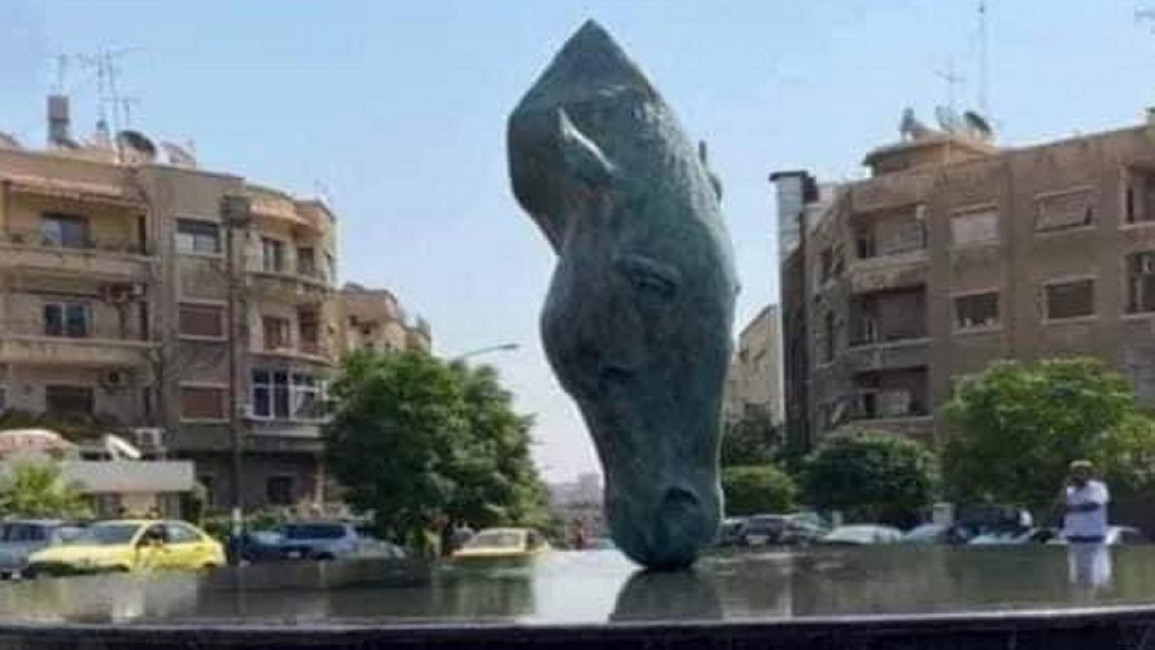Syrians mock Assad regime’s ‘copycat’ horse sculpture in Damascus
A sculpture of a horse's head appeared in a major square in the Syrian capital Damascus last Saturday, only to be removed several hours later after widespread mockery on social media.
The sculpture, which was created by Syrian artist Husam Jannoud and placed in Malki Square in central Damascus, was virtually identical to another sculpture called "Still Water", which stands in Marble Arch in London and was created by British artist Nic Fiddian-Green in 2011.
Both sculptures show the head of a horse lowered to drink water.
| Social media users quickly noticed that the idea for the sculpture had been stolen |
The New Arab’s Arabic-language affiliate Al-Modon reported that Syrian social media users were quick to notice that the sculpture in Damascus was a very similar imitation, accusing Jannoud of stealing the idea from Fiddian-Green.
Other people wondered what had happened to the statue of Adnan al-Malki that had previously stood in the square. Al-Malki was a senior Syrian army officer who was assassinated in 1955.
Read also: The erasure of Yarmouk: How the Assad regime is dismantling Syria's hub of Palestinian life
Even after the statue was removed, the mockery did not stop. Facebook users pointed out that officials from Bashar Al-Assad's regime had not realised that the sculpture was an imitation until after it was erected and pointed out on social media.
Some people noted that authorities had spent money on the imitation sculpture while Damascus was going through great economic hardship, with rising prices meaning that many cannot afford basic necessities, and frequently experience extended power cuts.
Syria has been in a state of conflict since 2011, when the ruling Assad regime brutally suppressed pro-democracy protests.
Following the negative reaction on social media and the sculpture's removal, the regime's Damascus Governorate published a statement saying that the placing of the statue had been "experimental" and its removal was due to "technical problems".
Follow us on Facebook, Twitter and Instagram to stay connected



